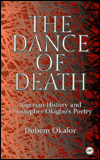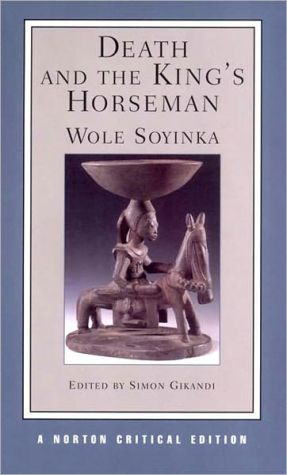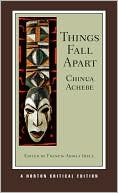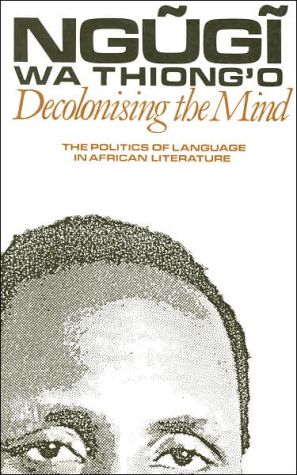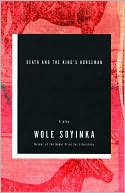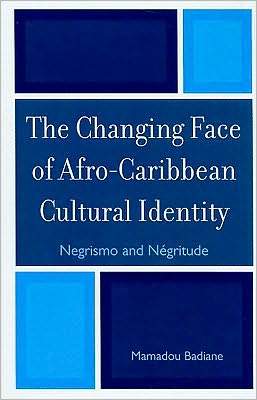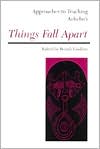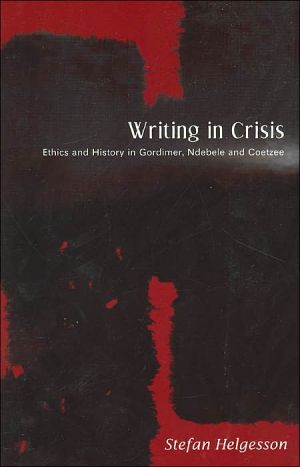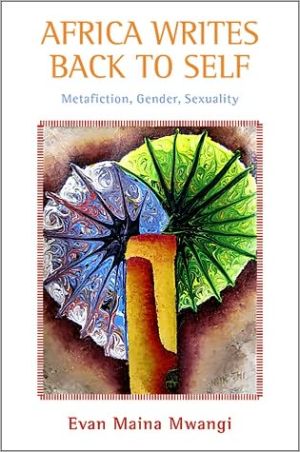The Dance of Death: Nigerian History and Christopher Okigbo's Poetry
Christopher Okigbo (1932-1967) was one of Africa's foremost poets whose life was cut short by the Biafran civil war. This book represents a definitive re-reading of Okigbo's poetry and a foregrounding of its importance as prophecy and warning to Nigerians (nay, Africans!) and the misrulers of Nigeria against continued national misdirection. Locating the poet squarely with all communalistic traditional African poetics, in which aesthetics and social functionality are coordinate components of...
Search in google:
A definitive re-reading of Okigbo's poetry and a foregrounding of its importance as prophecy and warning to Nigerians (nay, Africans!) and to the misrulers of Nigeria against continued national misdirection. The author discusses Okigbo as a poet of destiny, whose identification with the people was total.
Discourse, Blood, and Nation: Nigeria 1914-1996\ The "Introit" or "Mappings" is a kaleidoscopic panorama of the cultural-political history of Nigeria, undertaken here to underline the importance of primordialism as the bane of Nigerian politics, and to show how, in a precarious anti-structure, a mere political breeze, an ordinarily trivial, everyday event, can trigger off actions whose consequences are unpredictable, cataclysmic, and far-reaching. I will begin then with a detour, a rough translation and brief analysis of the lyrics of a song which became so popular and so ill-fated during the crisis-ridden period, 1966-1970, especially among "foreign" (that is, non-indigenous) elements in Northern Nigeria. Its importance in the political equation of Nigeria may not be immediately apparent, but will become so as my elaboration proceeds. The "Introit" will be followed by extended reiterations of the major salience already indicated, in the form of tripartite periodization which will not only foreground the deep roots of ethnicity in the evolution of the Nigerian nation-state, but will also provide a vindicating backdrop for Okigbo's prophecy of the tumultuous unfolding of the third (that is, present) period, 1970-1996.\ The goat is bleating, Yes, the goat is weeping; The dog is yelping, Yes, the dog is barking; The donkey is neighing, Yes, the donkey is groaning.\ Decontextualized, the rough translation of a verse from the song "Ewu na Ebe Akwa" ("The Goat is Bleating"), by the late Cardinal Jim Rex Lawson, a famous musician from Southern Nigeria, nominates a bestial guttural commonplace. It does not represent poetry, or any such serious thing. As the verse stands, it can only, at best, qualify as claptrap jingle. But in the context of the musical composition, when played, the rhythmic resonance of these lines captivates even the musicologist. Yet, that is not what makes the lines important. Read within the context of the conflagrant moment, 1966-1967, in the political-cultural history of Nigeria, these lines assume an allegorical significance far-reaching in the consequences that followed their performance. I will attempt in the following paragraph a simple and brief analysis of the major words, the nouns, and the verbs, of the lyric whose implications will be kept in view as the discussion proceeds.\ The goat and the dog are domesticated animals characterized by stupidity and blind fidelity, respectively, while the donkey is a stupid, docile, and long-suffering beast of burden. The latter is also a favorite means of transportation, especially for lepers, in Northern Nigeria. Bleating is a normal goat-sound; but it also a cry emitted in anguish by humans before the flashing sword. Weeping is lament, occasioned by bereavement, loss, and mourning. Yelping is a normal dog sound, while barking is associated with anger, rage, fury, rabidity, derangement, and dementia. Finally, the donkey neighs ordinarily and for different significatory purposes, but groaning indicates excruciating pain, as when bones, on being mangled and broken, crack!\ This interpretive simplification could have been considered quite innocuous-that is, in ordinary circumstances; but in the extraordinary circumstances of the 1966-1970 conjuncture in Nigerian history, the lyrics had much wider cultural and political ramifications. For the musical composition was performed by a famous southern Nigerian musician in Muslim Northern Nigeria, at a time when the North was still licking the fresh wounds of the loss of its political and religious leaders in the military coup of January 1966. Thus, as I read it, that musical, everyday event, which ushered in a flood of other events of national/international implications, was not only not just one of several events, nor was it only a mere trigger of these other events; that everyday event became both a paradigmatic and microcosmic exemplification of the national debacle in the sense that it adumbrated the confliction and disjunction of the biographical and the symbolic, the diachronic and the systemic axes: the famous musician (together with his largely Southern fans) was a single individual whose cultural practice and production did not proceed as part of, or contribution to, the total Northern Regional cultural ensemble. Rather, as it became interpreted and disseminated by the civil/religious society of the North, that cultural performance was flagrantly disruptive of the civil/religious/cultural/political order of the Northern cultural section. For the allegorical pejoration of the lyric was directed at the bereaved and bewildered Muslim population of the North. This mockery of the Northerners would appear to vindicate the late Prime Minister Balewa, a Northerner and first victim of the January 1966 coup. As far back as 1948, Balewa had observed that "the Northerners looked upon the Southerners living in the North as invaders who do not mix with the Northern people" (Nnoli 1978:231). In the eyes of the Northerners, therefore, the musical provocation, illustrative of the insensitivity of the Southern "invaders," was enough justification for the concerted and collective extirpation of the infidels from the sacred cultural space of the North.\ After the foregoing preamble, the discussion that follows will attempt a traditional narratological typology in that the story of the Nigerian debacle can be constructed in terms of a beginning which will quickly scan the cultural political history of Nigeria from the colonial period of 1966, and attempt to provide an explanatory backdrop for subsequent events; a middle which will examine the crises of the 1966-70 conjuncture; and an end which will complete the narrative cycle and return us to the status quo ante bellum in which the concept of nation in Nigeria remains not only not yet "imagined," but an oneiric imaginary.\ What came to be known as Nigeria was a conglomeration of different ethnic groups, or what reactionary Anthropology used to designate as tribes, but which, following Post and Vickers (1973), I will call "cultural sections" (17), or nations. For that is what they rightly are-unless, that is, such collectivities as the English, the French, the Spaniards, and the Hungarians are also to be similarly designated as tribes. Prior to colonization, these sections were relatively autonomous and isolated. When England established the two Protectorates of Northern and Southern Nigeria, they governed the administrative centers located in Lokoja, Lagos, and Calabar. At first, these centers administered their territories largely independently of each other. But after the amalgamation of the two protectorates of 1914, these separate sections were brought under one central administration. It must be stressed, however, that the acquisition and incorporation of these sections were piecemeal, that even with Amalgamation, effort was made to keep the North distinct from the South, and that the subsequent "development" of the sections was consequently uneven. This differential incorporation did not mitigate the relative isolation to which these groups had been accustomed; instead, it exacerbated the situation by pitting the groups one against another and by widening the already existing chasm of cultural differences, thus adding to the stress and tension. It is this tension that I see as the abiding feature of Nigerian cultural-political history. For the imposition of the European modular-state structure on the incipient "country" did nothing to counteract the determinative power of primordialism in the attribution and exercise of loyalty (Davidson 1992). Put differently, Nigeria's cultural-political history has been a study in primordial tensions and conflicts.
DedicationAcknowledgementsPrefaceCh. 1Introduction: Discourse, Blood, and Nation: Nigeria 1914-19961Ch. 2The Nigerian / African Writers and their Milieux49Ch. 3Ethnicity and Cacophony: The Dilemma of Tongues77Ch. 4Okigbo: The Man and the Artist99Ch. 5Okigbo's Postcolonial and Cultural Politics149Ch. 6The People and the Dilemma of Nation207Ch. 7A Prophetic Conclusion: Poet, Nation, Death241Bibliography255Index293
